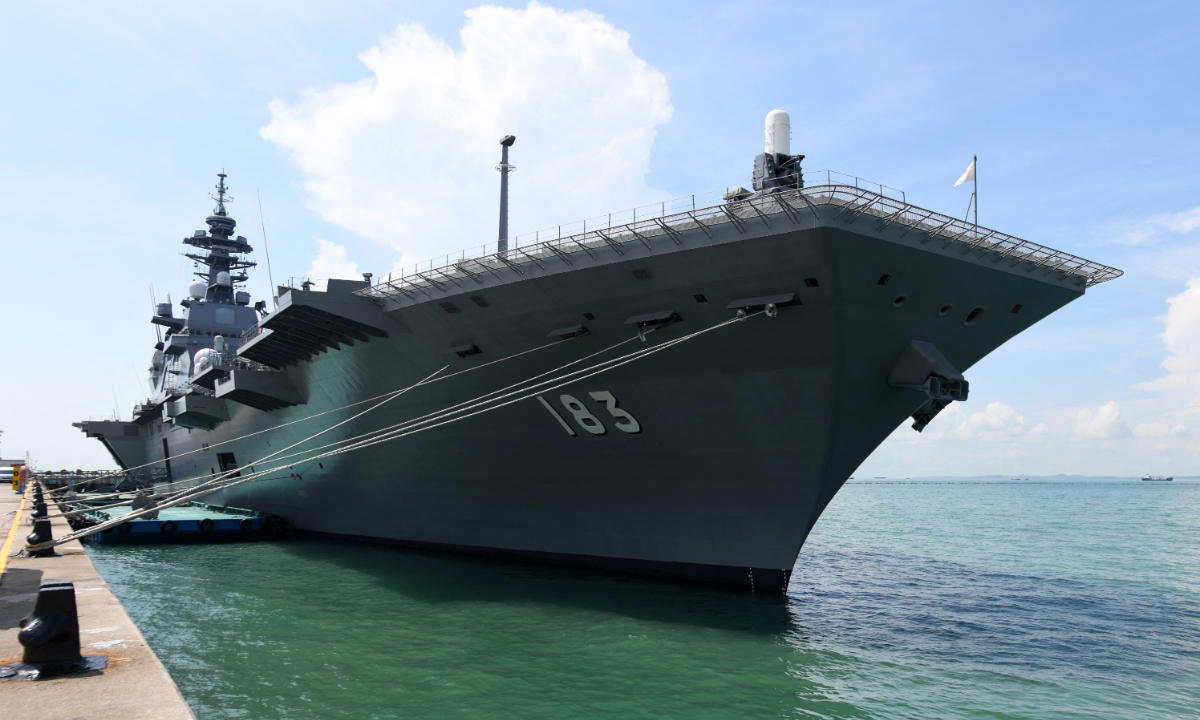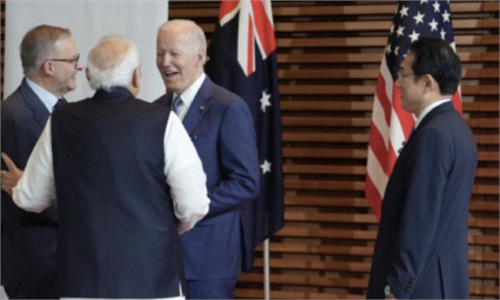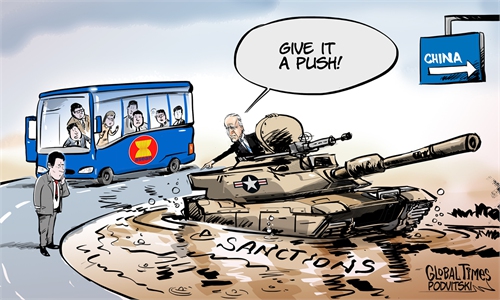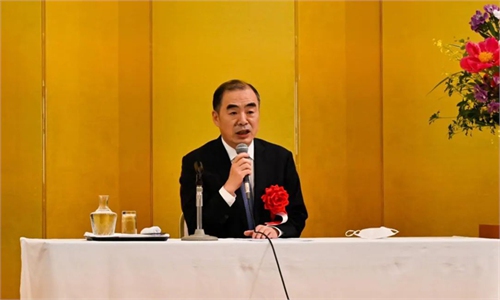
Japan's JS Izumo naval ship is seen during a media tour at Changi Naval Base in Singapore on May 13, 2019. Photo: AFP
Japan reportedly plans to send its recently converted aircraft carrier Izumo to participate in the country's annual Indo-Pacific Deployment (IPD). The IPD will last about four months and Izumo will also be participating in the Rim of the Pacific Exercise (RIMPAC), which will be conducted in and around the Hawaiian Islands and Southern California region from June 29 to August 4. This time, unlike previous deployments, F-35B fighter jets will be able to operate from Izumo.
Increasing signs show that Japan has already violated the pacifist constitution. The pacifist constitution calls for exclusively defense and forgoes the development of offensive weapons and equipment, including aircraft carriers, Song Zhongping, a Chinese mainland military expert and TV commentator, told the Global Times.
However, Japan has not only converted its helicopter carriers but also strengthened its offensive capabilities with a larger number of purchased weaponry, including F-35 fighter jets. Japan is now the largest overseas buyer of US' F-35s.
The Japanese government has found itself an excuse for overseas deployment by following the US to manipulate issues like regional security. Tokyo enacted major changes to its self-defense laws to enhance its overseas capabilities. All these are contrary to the pacifist constitution.
Meanwhile, to break more limits, Japan has been catering to the US that put "shackles" on it. Tokyo is actively cooperating with Washington's strategy to contain China, acting as a pawn of the US in the latter's geopolitical games in the Asia-Pacific.
Former Japanese prime minister Yoshihide Suga said during his visit to Washington in April 2021 that "the United States is Japan's best friend… in light of the current regional situation and the severe security environment, the importance of our alliance has reached new heights."
Nevertheless, it is likely little more than wishful thinking to call the US "best friend" of Japan. As Atsushi Koketsu, professor emeritus at Yamaguchi University, noted, profound exchanges with China is indispensable for Japan's stability and development but blindly following the US' strategy to blockade China will bring harm to Japan and its people.
What Japan did during World War II brought catastrophe upon its people. But Japan refuses to face up to the history and reflect on its evil doings. Instead, it has been trying to conceal its war crimes and even whitewash them. This is an insult and contempt to all the innocent people who suffered from Japan's militarism.
During WWII, Japan invaded various countries in the Asia-Pacific, including Pacific island states like the Solomon Islands and New Guinea. It is reported that Japan's warships for this year's IPD will dock at the ports in some Pacific Island countries, including the Solomon Islands. Japan has reiterated its intent to strengthen ties with Pacific Island nations, emphasizing regional security issues. But Japan, which refuses to admit to its crimes, can hardly address Asia-Pacific countries' concerns.
By extending its overseas presence and enhancing military capabilities, Japan will only make Pacific Island countries feel a sense of threat rather than a guarantee of peace. With the revival of Japanese militarism encouraged by the US, it is hard for regional countries not to worry about new irreparable damage to the region.
We are no longer in a world comparable to WWII and Japanese militarism was defeated before and will be defeated again. "If Japan dares to pose a threat to the national security of other countries, or even dares to launch another surprise attack, the mainland of Japan will become a battlefield," Song said.
Song believes that what Japan should do is to really uphold peace and not compromise its pacifist constitution because it has no capacity or potential to wage or sustain another war. "This is not only a sincere advice to Japan but also a warning," Song noted.



